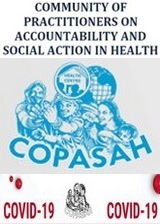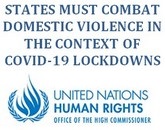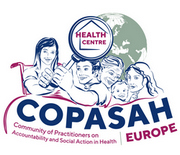The survey about the sexual and reproductive health and the rights of the population aims to analyze the situation related to the sexual and reproductive health of both women and men in RM, such as the knowledge, behavior and attitudes of the population, access to to health services for sexual and reproductive health, quality of offered health services and the satisfaction thereof. In addition, the survey aims to examine the determinants that influence the reproductive health of the population in RM.
The survey represents a prospective cross-sectional study and was carried out in the course of 2009 and 2010, on a representative sample comprised of 2691 respondents aged 15 to 49 from total of 8 statistical regions in Macedonia, out of which 1346 were female respondents and 1345 were male respondents. Stratified systemic samples were used for the two samples, whereby the units of the sample were selected within certain strata in a systematic manner.
The survey enabled us to collect data with regard to the following areas:
- demographic and socio-economic characteristics;
- sexual intercourse, including data about the first sexual intercourse, sexual behavior and use of protection in sexual intercourse;
- contraception, including knowledge of the respondents about contraception, use of contraception and factors that make influence and the attitudes regarding the use of contraception;
- condoms,that is, knowledge and attitudes of the respondents regarding the use of condoms, the actual use as well as factors that influence the use of condoms;
- STD and HIV/AIDS, including the knowledge and attitudes of the respondents with regard to these matters;
- family planning, including the knowledge, attitudes and behavior of the respondents regarding the family planning as well as the behavior of the respondents when concluding the first marriage and formation of family;
- care in the course of pregnancy, delivery and postnatal care, including the behavior of women during the first pregnancy, the scope of health care during the first pregnancy, satisfaction of the women from the received health services during the control check-ups and delivery in the first pregnancy, the scope of services of the patronage nurses during the first pregnancy and after delivery, behavior of the women during the breastfeeding of their first child and behavior of men during the first pregnancy of their wives (partners);
- abortion, including data about the abortion rate, health services related to the abortion as well as knowledge and attitudes of both women and men related to abortion;
- health services related to the reproductive health and reproductive rights, including the coverage of women with family gynecologist, satisfaction from the health services provided by the family gynecologist, as well as knowledge, attitudes and behavior of the women respondents regarding the preventive gynecological examinations and preventive breast examinations.

The right to preventive health care of each citizen is guaranteed by the Constitution and the laws of Republic of Macedonia. The type and the manner of implementing the measures for preventive health care are regulated in the Programs for preventive health care of the population. These programs are adopted by the Government of RM every year, and are implemented by the Ministry of health. Part of the preventive programs is also the Program for early detection of malign diseases, which having three components stipulates a range of preventive health services for early detection of cervical cancer, breast cancer and colorectal cancer.
Driven by the long-termed mission of the Association ESE for promotion of women’s health and improvement of the transparency and accountability of state institutions, ESE conducted an analysis about the extent to which planned program activities and funding were implemented as foreseen with the program for early detection of malign diseases in R.Macedonia for 2011 (01.01.2011 to 31.12.2011).
Subject of the analysis are the activities foreseen within the two components of the program – component for early detection and prevention of diseases in female reproductive organs (pilot screening for cervical cancer) and component for organized screening of breast cancer.
The purpose of this analysis is to establish whether the activities were conducted in the planned type and scope, as well as to establish whether the funds from the budget for the Program were spent for the planned purpose or whether unspent funds remained.
Furthermore, this analysis provides an overview of the trend of movement of the planned funds from the Program for early detection of malign diseases in the period from 2008 to 2012, as well as the share of these funds in the central budget, the budget of the Ministry of health and the budget for health care for prevention for the respective period. Also, the same approach was used to give a more detailed representation of the movement of funds for the implementation of activities for screening of cervical cancer and breast cancer.
Findings from the conducted monitoring of the implementation and budget for early detection of malignant diseases (en)

In order to gain insight into the implementation of the activities foreseen with the 2011 Program for active health care of mothers and children, we carried out an analysis about the extent to which the planned program activities are implemented and the funding foreseen for the realization thereof for the period from 01.01.2011 to 31.12.2011. The analysis was carried out through collection of publicly available information, by submission of 27 requests. The requests for access to information of public character were submitted to the Ministry of health of Republic of Macedonia, whereas the answers to the questions through the Ministry of health were provided by the competent medical institutions.
The analysis includes the processing of collected data aimed to show the planned program measures and foreseen funds for their realization versus the conducted program measures and spent funds for their respective realization. Spent funds for the realization of the activities from the Program were established on the basis of the conducted program activities as stated in the answers from the competent institutions and the cost for each of the separate activities as stated in the budget of the adopted Program. In order to establish the efficiency in the implementation of planned activities aimed for the Roma communities from the Program for active health care for mothers and children, the analysis also included the manner of spending the budgeted funds included in the budget of the Program, so as to establish the percentage or amount of funds which are not used, and accordingly to establish the items, i.e. activities which are not completely realized. The findings of this analysis are presented in part one, i.e. under the implementation of the 2011 Program for active health care of mothers and children.
Furthermore, we also provide an overview of the foreseen activities in the 2012 Program for active health care of mothers and children in order the specify the continuity and the efforts of the Ministry for increasing the coverage of Roma children with vaccination.
The second part of this analysis, i.e. the financial analysis of the Program for active health care of mothers and children, provides an overview of the respective budget for the period from 2010 to 2012. The budget of this Program was considered in respect of the budget of the Program for protection and prevention, the budget of the Ministry of health and the central budget. This approach was used in order to show the participation of the budget of the Program for active health care of mothers and children in the budget for preventive health care, the budget of the Ministry of health, i.e. the central budget. Despite this comparison, we also make an analysis of the sources of funding which is allocated for the realization of this Program, i.e. whether the funds come from domestic or foreign sources of funding.
Analysis of the active health care of mothers and children (mkd)

The findings and the results from this survey enable to fill the existing vacuum and lack of clear policy and practice to analyze these phenomena, as well as lack of analysis for the action taken by particular institutions, which according to the legislation, are mandated to act in cases of psychological and sexual harassment. Namely, although there is a generally established legal mandate for the action to be taken by these institutions, yet, the procedure, the mechanisms for protection as well as the competencies of each of the formal actors in the system of protection, are not clear and precise. Therefore, there is inability on the part of the worker – victim of violence at the workplace to ensure adequate and efficient protection.
The subject-matter of this analysis, i.e. is to establish the extent of institutional response of the competent institutions to the violence at the workplace, however, also to establish the level of development of the organizational capacities and procedures for prevention and protection of victims of violence at the workplace, implies that several sources of findings and several methodological procedures were taken into consideration. For the needs of the survey, violence at the workplace was limited to two phenomena which were the focus of this survey: psychological harassment (mobbing) and sexual harassment.
The starting point for the realization of the respective survey is the existing legal base in the labor legislation that regulates the stated phenomena, i.e. psychological and sexual harassment at the workplace. This survey is an essential addition to the survey “Violence against women at the workplace”, carried out by ESE.
The structural determination of the report on the conducted survey arises from the subject and the objectives of the survey, and in this context, the report is divided in two units as follows:
Part one: Action taken by institutions and other actors regarding the violence at the workplace (psychological harassment and sexual harassment).
Part two: Organizational policies regarding the violence at the workplace (psychological harassment and sexual harassment).

The report aims to represent the situation in relation to the level of compliance of the national legislation with the provision of the CEDAW Convention, as well as other relevant international treaties, the factual situation with regard to the discrimination against women in all spheres of society and provide insight in the achieved progress i.e. actions undertaken by the Republic of Macedonia upon the Concluding Comments of the UN CEDAW Committee issued in the last round of reporting by the state.
The following methodological procedures were conducted within the legal and factual analysis of CEDAW: content analysis; national survey; focus groups and individual interviews and request for collecting public information data.
The following civil organizations contributed to the drafting of this report: Women association “Bojana”, NGO “LIL”, Organization of women in the city of Skopje, Association of friendship among Turkish women, Women’s Forum Tetovo, Polio Plus, Republic centre for supporting the people with mental disability – PORAKA, HOPS, Association of young lawyers, Open Gate, H.E.R.A. and Coalition for sexual and health rights of the marginalized communities.
































